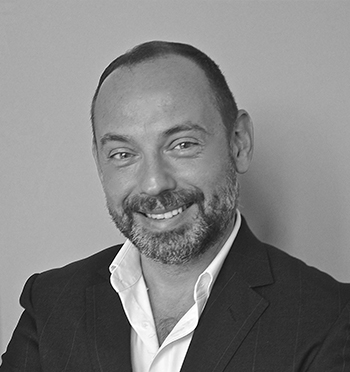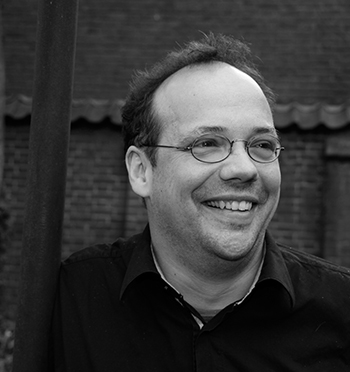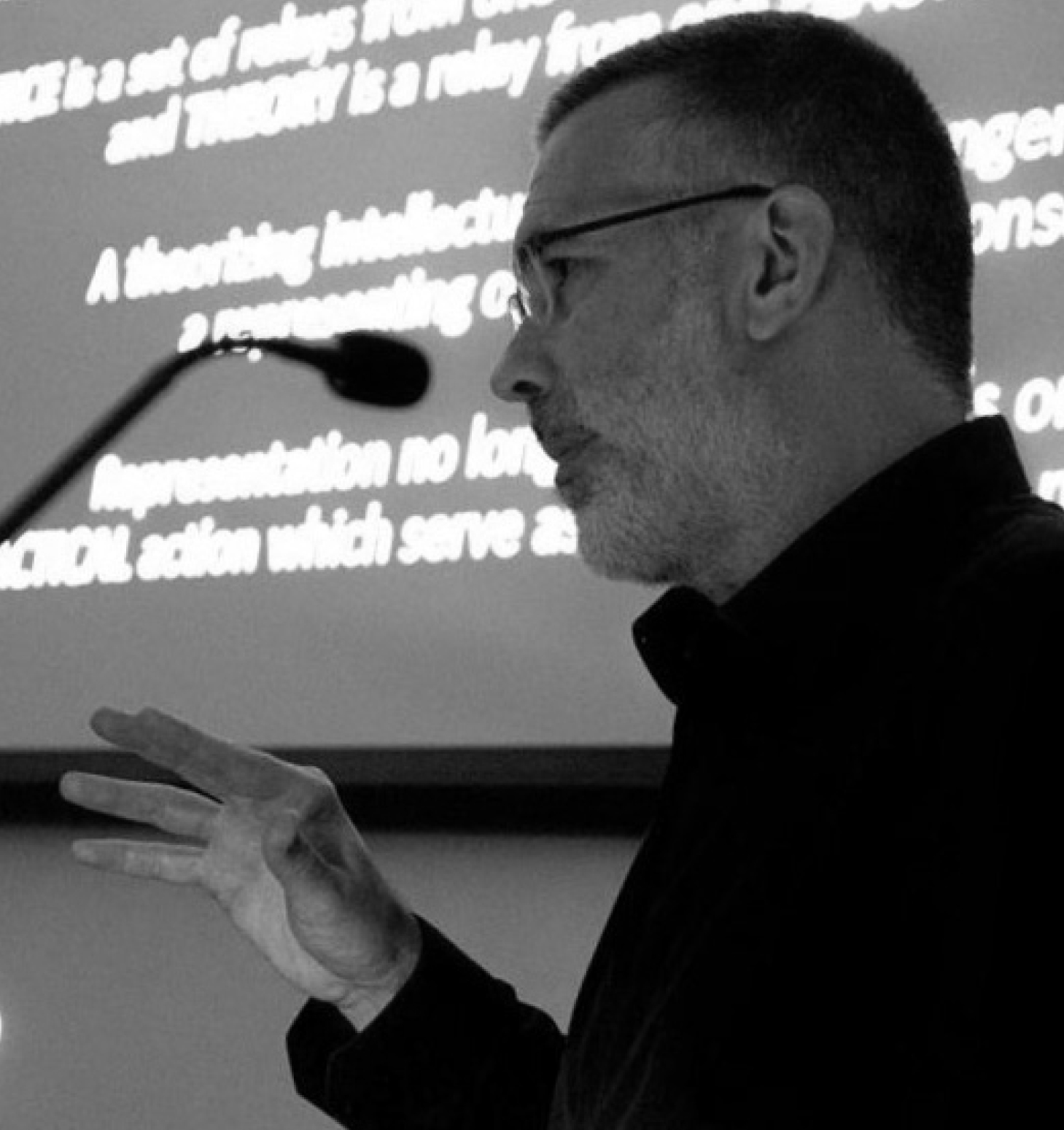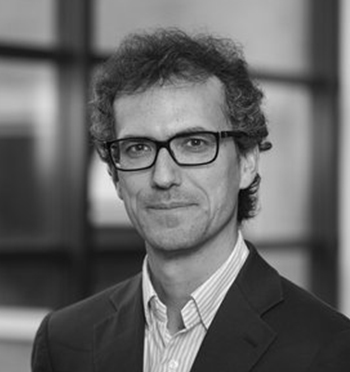BK Talks: Is this true?
Democracy, autocracy and truth forming (and what architecture’s got to do with it?)
02 juni 2022 18:00 t/m 20:00 - Locatie: OOSTSERRE & ONLINE - Door: Communication BK | Zet in mijn agenda
On 2 June, the BK Talks 'Is this true? Democracy, autocracy and truth forming (and what architecture’s got to do with it?)' will take place.
This edition of BK Talks, co-organised with BK’s Diversity Officer Roberto Rocco, investigates the intersections between the built environment and democracy, and how the absence of shared truth forming undermines our ability to deliver sustainable, fair and inclusive cities.
For moral and political philosopher John Rawls, truth concerns validation, whereas justice determines acceptability: what is acceptable or not acceptable as outcomes of people’s and institutions’ actions and agreements. Both contribute to the formation of a democratic public sphere. This democratic public sphere is where some sort of common understanding of the World is formed and shared, which allows us to decide how we are going to live together in cities and communities. Manipulated social media, radical populism and political cynicism fuel disinformation and untruth, corroding the public sphere, and eating at the very core of democracy. Without shared truth forming, and true public reasoning, there’s no agreement about how to face the biggest challenges of our times: climate change, growing inequality, and the fall of democracy itself as a viable project.
Moderated by Dr. Caroline Newton, the panel aims at finding some answers about the role of design in contributing to shared truth forming about cities and communities.
Host

Roberto Rocco
Associate Professor of Spatial Planning and Strategy, Department of Urbanism, and Diversity Officer at the Faculty of Architecture and the Built Environment, TU Delft
Roberto has trained as an architect and spatial planner with a master’s in planning by the University of São Paulo, a specialisation in urban management tools by the École d’Urbanisme de Paris (former Institut Français d’Urbanisme) and a PhD by TU Delft. He is a specialist in governance for the built environment. This includes issues of spatial justice and social sustainability as crucial dimensions of sustainability transitions. He has coordinated several courses and design studios over the last 13 years working at TU Delft. As the Diversity Officer at the Faculty, he also leads the discussion on diversity and inclusion.
Roberto is committed to understanding the relationships between society and the production and governance of the built environment. He investigates how actors and institutions from the public sector, the private sector and civic society interact in planning, designing, governing and inhabiting the built environment, both formally and informally. These basic but foundational ideas guide his actions as an educator and researcher.
Moderator
Caroline Newton
Associate Professor at the Department of Urbanism, Faculty of Architecture and the Built Environment, TU Delft
Caroline Newton is an architect, urban planner and political scientist. She holds a PhD in social geography from the University of Leuven (Belgium). Since 2019, she has been the Van Eesteren Fellow at TU Delft’s Faculty of Architecture and the Built Environment, Department of Urbanism.
Her work and research focuses on the socio spatial dimensions of design and critical spatial practices in Europe and the Global South, with her research interests centred on the interrelationship between social processes and the built environment. She has been working on (informal) dwelling and participatory upgrading, the challenge of design and planning in post-colonial environments and also on the methodological and pedagogical challenges of a 'designerly way of knowledge production'. Additionally she has an interest in the integration of real and virtual words and their role for architecture and urban design and planning education.
She is a member of the editorial board of the Journal of Housing and the Built Environment and an expert on socio-spatial planning in the GECORO of Mechelen.
Panellists
Nurhan Abujidi
Head of the Smart Urban Redesign Research Group (SURD), Zuyd University of Applied Sciences and Academic Staff Member at the Urban Design, Urbanism, Landscape and Planning Unit at KU Leuven
Dr. Nurhan Abujidi’s professorship at SURD focuses on improving liveability, quality of life and well-being in the built environment, both in a technical and non-technical way. Through her Living Labs, she brings students from different disciplines together with social parties. Nurhan is leading a large multidisciplinary quality of life project in the Maastricht neighborhoods of Mariaberg and Randwyck, involving a total of six hundred students from all grades and from eight different courses – from ICT to occupational therapy – who work on issues related to the circular economy, climate adaptation, social inclusion, public space and vitality. She has also involved the municipality, companies as well as Maastricht University, MBO institutions and several foreign universities.

Ibo van de Poel
Antoni van Leeuwenhoek Professor in Ethics and Technology at the School of Technology, Policy and Management, TU Delft
Ibo van de Poel is Antoni van Leeuwenhoek Professor in Ethics and Technology at the School of Technology, Policy and Management at Delft University of Technology. He did a master in Philosophy of Science, Technology and Society (with a propaedeutic exam in Mechanical Engineering) and obtained a PhD in Science and Technology Studies from the University of Twente before he came to Delft in 1998. He is a member of Dutch Royal Academy of the Sciences (KNAW).
Van de Poel’s research focuses on several themes in the ethics and philosophy of technology: value change, responsible innovation, design for values, the moral acceptability of technological risks, engineering ethics, moral responsibility in research networks, ethics of newly emerging technologies, and the idea of new technology as social experiments. In 2010, he received a prestigious VICI grant from the Netherlands Organization on Scientific Research (NWO) for his research on new technologies as social experiments, and in 2018 he received an ERC Advanced Grant on Design for changing values: a theory of value change in sociotechnical systems. He is also one of the six PIs of the 10-year Gravitation project Ethics of Socially Disruptive Technologies.

Andrej Radman
Assistant Professor of Architecture, TU Delft
Andrej Radman has been teaching design and theory courses at the TU Delft Faculty of Architecture since 2004. A graduate of the Zagreb School of Architecture in Croatia, he is a licensed architect and recipient of the Croatian Architects Association Annual Award for Housing Architecture in 2002. Radman received his master’s and doctoral degrees from TU Delft and joined the Architecture Philosophy and Theory Group as assistant professor in 2008. He is an editor of the peer-reviewed journal for architecture theory Footprint. His research focuses on new-materialist ecologies and radical empiricism. Radman’s latest publication is Ecologies of Architecture: Essays on Territorialisation (EUP, 2021). Andrej’s interest in the theme stems from his experience as a long-term editor of Footprint. What he would like to contribute to the discussion on dissemination (of knowledge) is the problem of attention (and lack thereof).

Filippo Santoni de Sio
Associate Professor in Ethics of Technology at the Faculty of Technology, Policy and Management, TU Delft
Filippo is a philosopher. He studies the problems of personal responsibility and analyses concepts such as action, capacity, and responsibility with an interdisciplinary approach (philosophy, law, neuroscience, robotics). The general focus of his work is on the way in which the study of hard practical (legal) cases may change or complicate the traditional philosophical views on these concepts. The focus of his current research is in Robot Ethics. Whilst currently Assistant Professor in Philosophy at TU Delft, he is also am also a member of the 3TU task force for ethics and robotics. Currently, Filippo and his partners in the interdisciplinary project ‘Meaningful Human Control over Automated Driving Systems’ are creating a new theoretical framework to design for better safety and clearer distribution of moral responsibility in automated driving. The ultimate goal of this line of research is creating a general theory of what we call ‘meaningful human control’ to be applicable to a broad range of AI-based autonomous systems.

Esha Shah
Lecturer and Assistant Professor of Water Resource Management Group, Wageningen University
Esha Shah is environmental engineer by training and a social scientist by professional choice. Her past and current research is focused on anthropology, history and philosophy of science and technology. She employs anthropological and historical methods in all her research and is increasingly using sources from popular culture (films and fiction) and (auto)biographical life-writings for her research and teaching.
Since her Doctorate from Wageningen University in the Netherlands, Esha has held research and teaching positions in the discipline of STS (science and technology studies) at the University of Sussex in the UK and the Maastricht University in the Netherlands where she has taught courses on Science Technology and Development and Globalisation, Debates on Technological Controversies, Philosophy of Science, and Anthropology of Technology. She also held the position of fellow with the Indian Institute of Advanced Studies, India (2013 -- 2015) and the Institut d'études avancées de Nantes, France (October 207 - June 2018). At the moment she is scholarly teacher at Wageningen University.
Her research interests are concerned with the history and anthropology of science and technology-led development in India on the divide of modernity and democracy. Currently she is working on: 1) the way ideals and practices of manliness and masculinity shaped the colonial history of dam engineering, 2) the way of imagineering mega-hydraulic infrastructure such as large dams and the colossal National River Interlinking Project in India.
Practical information
This BK Talks will be streamed live from the Oostserre and can be followed via this link.